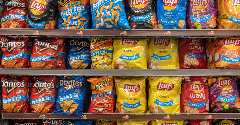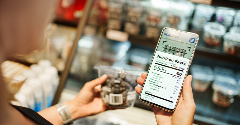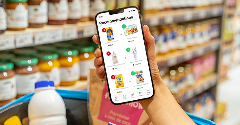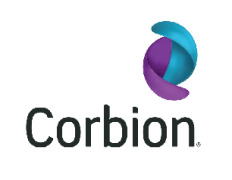News
The rise of ethical food and drink claims
13 May 2019Ethical claims on food labels are big business, accounting for more consumer spending than claims related to health and wellness, according to Euromonitor International. Covering every aspect of food production from packaging and organic production to animal welfare and workers’ rights, which are most important to consumers?
The prevalence of ethical claims related to animals, people or the environment on new food and drink products grew 47% from 2013 to 2017, according to Innova Market Insights, and animal-friendly claims are among those leading the way. The market researcher says the number of new products making a vegan claim increased by 45% a year from 2013 to 2017, driven by flexitarian consumers concerned about healthy eating, animal welfare and the impact of animal agriculture on the environment.

What is more, conscious consumers are willing to spend more on products that are produced in a more ethical manner. However, animal welfare claims only tell part of the story, as consumers have begun to expect that all products have high welfare standards, and increasingly are turning toward plant-based foods as a way to bypass the issue altogether.
Plastic waste also has become a major issue for western consumers in recent years, making recycled, recyclable, compostable or biodegradable packaging a priority for many shoppers. Euromonitor International highlighted the push for a plastic-free world among its top consumer trends for 2019.
However, there is a long way to go, as it estimates that 63% of all CPG packaging is made from plastic, often chosen for its durability and ability to keep food safe and fresh. Recycling rates are often low, and much of the plastic packaging that is recycled was – until recently – shipped to China for processing. After China decided to end this trade in 2018, many western countries have been prompted to look again at their recycling policies.
Meanwhile, Euromonitor has found that the proportion of people who are willing to pay more for eco-friendly food has risen over the past two years, as has the proportion of those who feel that recyclable packaging influences which beverage they choose.
Although plastic waste and animal welfare are hot-button areas of concern, organic is still a claim that a lot of consumers trust, with many believing that an organic label covers much more than agricultural production methods. European sales of organic food and drink increased by 48% from 2012 to 2016, with Germany and France leading the market, according to FiBL figures. For European consumers, organic certification touches on animal welfare and the drive toward better environmental practices, and 72% also associate it with better quality, while 70% believe organic food is safer.
Whichever claims manufacturers choose to use on product packaging, suppliers increasingly are coming together to ensure that specific ingredients are ethically sourced. For example, Corbion recently signed on to the North American Sustainable Palm Oil Network (NASPON), which includes other big suppliers like Barry Callebaut, Blommer Chocolate Company, Bunge, International Flavors & Fragrances, and IOI Loders Croklaan. The aim is to help North American companies deliver on commitments to source sustainable palm oil.
Similar collaborative projects are underway to improve supply chains for other commodity ingredients, such as cocoa and coffee.
Related news

PepsiCo formulates ‘naked’ Cheetos and Doritos products
31 Dec 2025
US food giant PepsiCo has launched its Simply NKD range, a move it says reimagines its popular products with new formulations free from artificial flavours, dyes, and colours.
Read more
Debate over ban on ‘meaty’ names for plant-based products reaches stalemate
26 Dec 2025
The debate over a ban on plant-based products using “meaty” terms has reached a stalemate, leaving manufacturers in limbo and still facing overhauls to their marketing and packaging.
Read more
Has ‘clean’ had its day?
22 Dec 2025
Wielding clean-label positioning and fortification as marketing levers is a dangerous strategy, and brands would be better off explaining the hows and whys of the ingredients in their products, say experts.
Read more
Bigging up bean-based products and consumption in Britain
19 Dec 2025
Non-profit organisation the Food Foundation has launched a campaign, “Bang in Some Beans”, designed to increase UK consumers’ legume consumption.
Read more
Ingredient transparency key to success in European natural health market
12 Dec 2025
Europe’s $40.7 billion supplements market is growing fast, fuelled by demand for products that support healthy ageing, mental wellbeing, and preventive health, say experts.
Read more
Sorghum emerges as better-for-you hero ingredient
9 Dec 2025
With the launch of Novak Djokovic’s sorghum-based brand, the grain’s popularity in the better-for-you snacking sphere is on the rise, thanks to its nutritional and sensory properties.
Read more
Innovation promise in 'maturing' plant-based dairy alternatives market
8 Dec 2025
Plant-based dairy is a maturing market that still faces significant hurdles around taste, functionality, nutrition, and price, but industry is innovating fast, according to experts speaking at Fi Europe.
Read more
Celebrating the winners of the Fi Europe Innovation Awards 2025
3 Dec 2025
Food industry stakeholders celebrated as the winners of the Fi Europe Innovation Awards were announced at a ceremony in Paris.
Read more
Yuka’s food scanning app helps consumers make healthier choices
2 Dec 2025
Global food scanning app Yuka helps consumers understand the content of their shopping baskets and shapes producers’ reformulation plans.
Read more
Non-UPF Program extends certification scheme to entire food industry
30 Nov 2025
The Non-UPF Program has extended its certification scheme to the wider food sector, championing a move towards healthier consumption habits.
Read more



